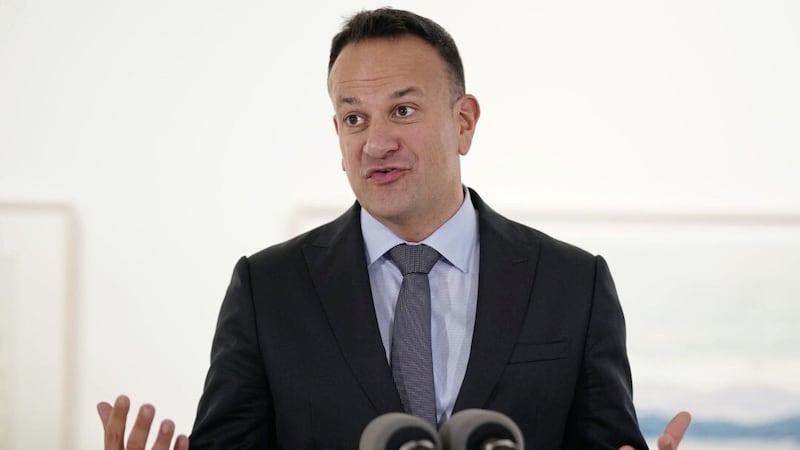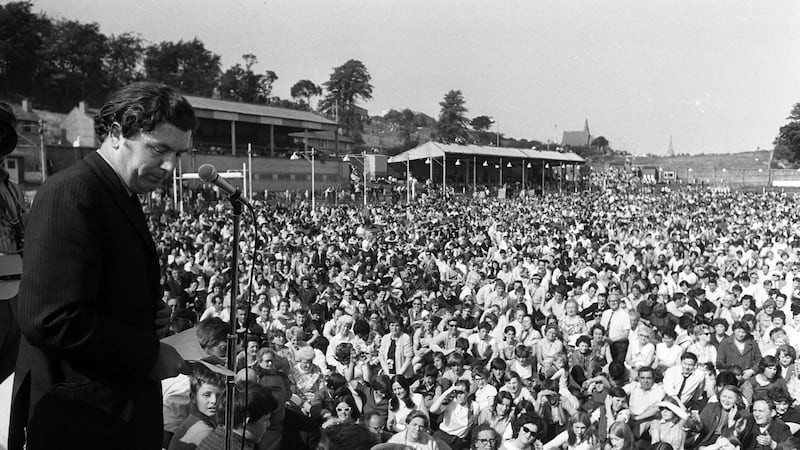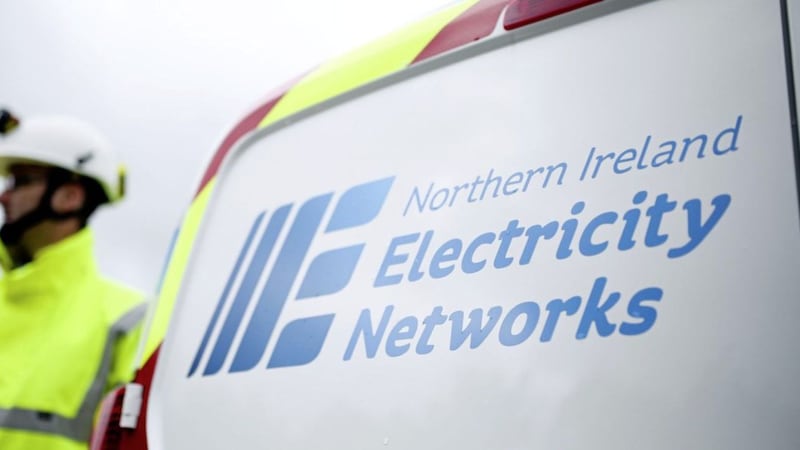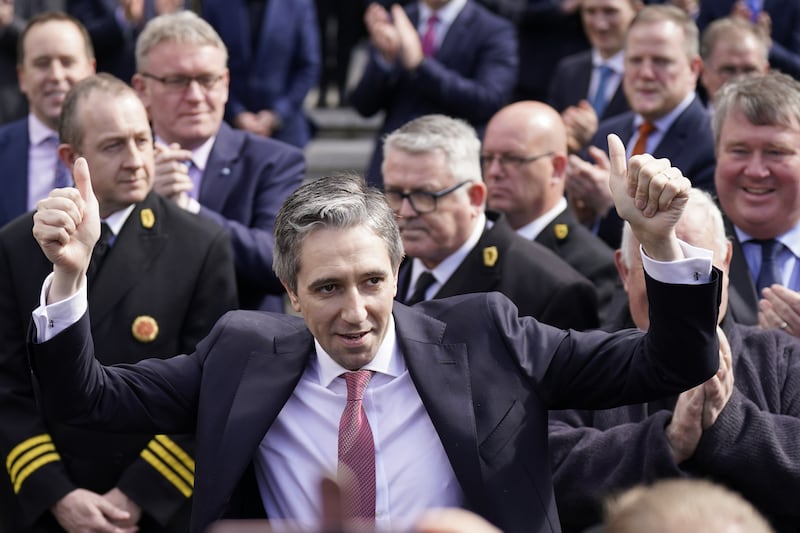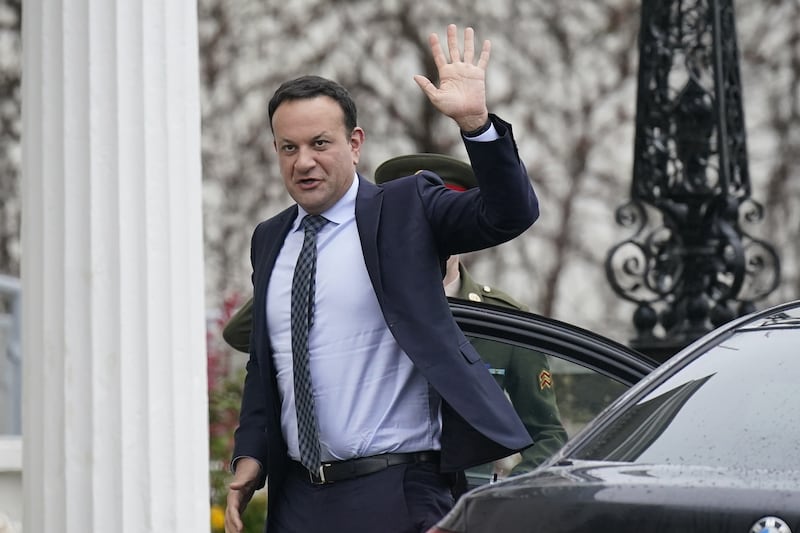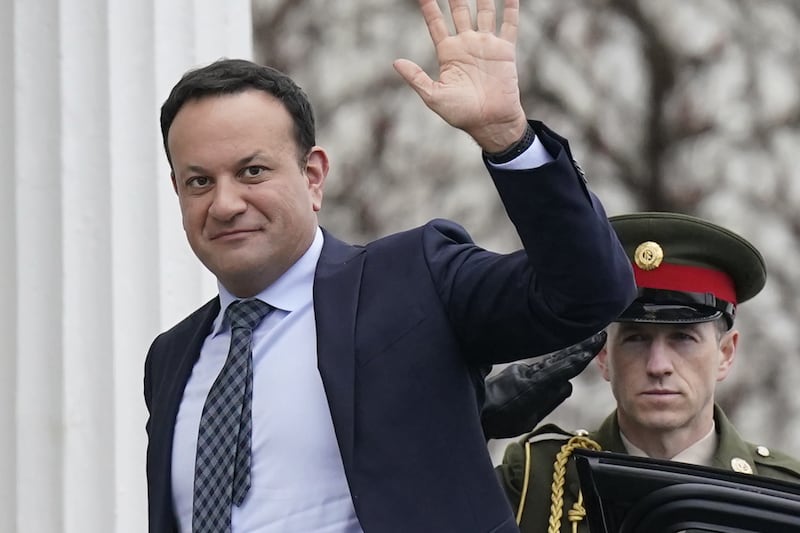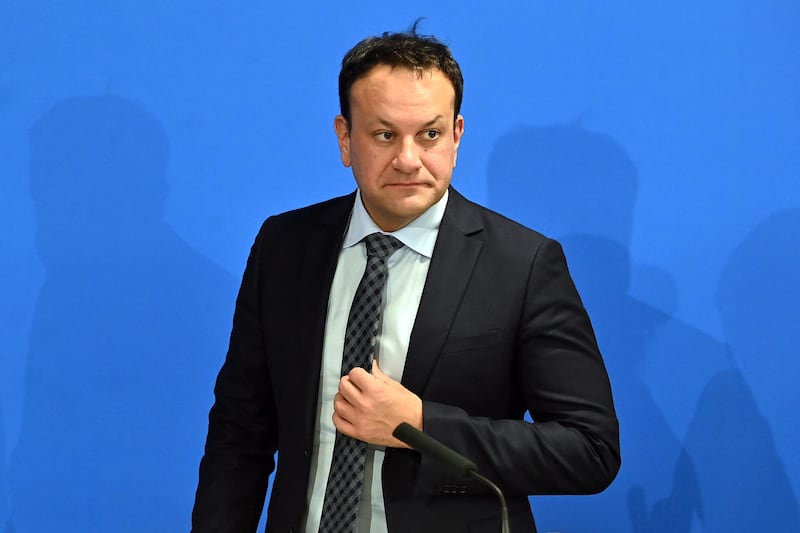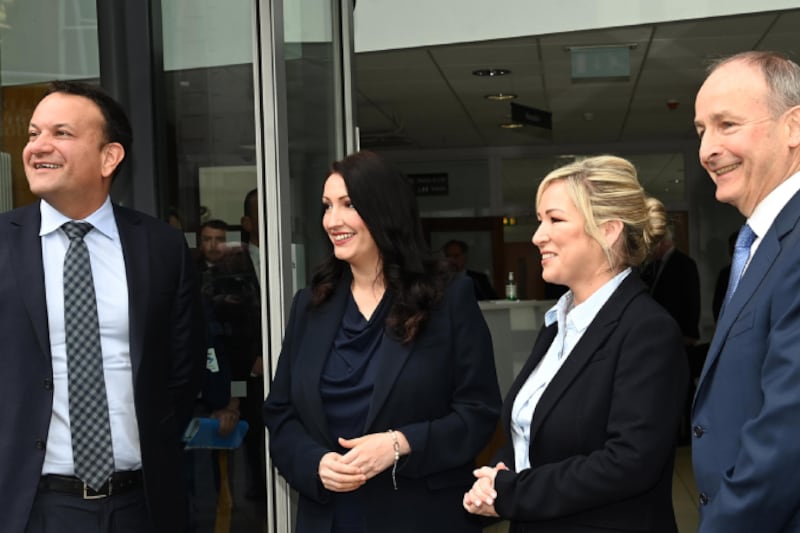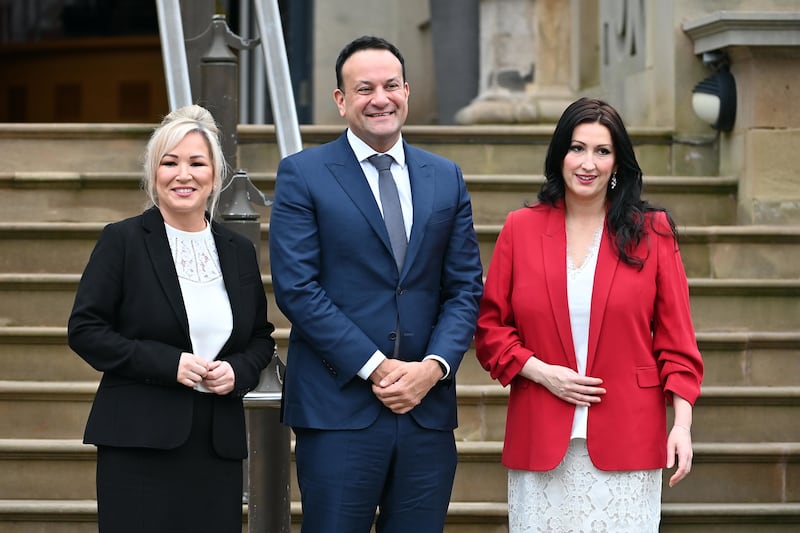TÁNAISTE Leo Varadkar has echoed Taoiseach Micheál Martin's assertion that there can be no return to direct rule from Westminster if power-sharing is not restored.
The Fine Gael leader said that the Irish government will exhaust every possibility within the framework of the Good Friday Agreement if there is a sustained period with no executive.
Speaking in the Dáil yesterday, he said it was "regrettable" that the north looks likely to be facing another election due to the DUP refusal to restore power-sharing.
Secretary of State Chris Heaton-Harris is expected to confirm today that an assembly election will take place in the coming weeks after yesterday's eleventh hour efforts to break eight months of deadlock failed.
Mr Varadkar said that if an election goes ahead, it is impossible to predict its outcome.
"As things look today, the results will be much the same as it was in the last election, with no clear majority for unionist combined or nationalist combined," he said.
"Probably Sinn Féin will be the largest party again. I think there will be a clear majority of MLAs who don't want the protocol scrapped, re-elected and that has to be taken into account but you can never predict for sure what's going to happen in any election."
He said it was was regrettable that an election was forthcoming because "one party has decided not to participate – and that's the DUP".
"I think that's very much regrettable but if that happens, we'll deal with the situation as it develops," he said.
The Fine Gael leader said that the parties in Northern Ireland, including the DUP, will get a mandate from the people in the region to sit in theaAssembly.
"People come out on election day and put a number or an X next to your name because they want you to be in government, they want you to make decisions," Mr Varadkar added.
"I would like to hear the voice of the DUP in Northern Ireland government. But that's not possible at the moment and that goes to the other parties as well.
"I think we would have been able to manage Brexit and what happened a lot better had the Northern Ireland Assembly and executive been up and running, it wasn't at the time, it isn't now."
Mr Varadkar said that the decision of the DUP to block the operation of the Northern Ireland Executive runs "counter to democracy" and risks undermining the fate of the people in the region.
Labour leader Ivana Bacik said it was time to look at ways of reforming the operations of the executive.
Ms Bacik said that the use of the veto had entrenched division in northern politics.
"The assembly has not had a functioning executive for four out of the last six years due to intransigence on the part of different parties," Ms Bacik told the Dáil.
"It must now be time to look at reform."
She said measures introduced in the St Andrews Agreement meant the largest party in either designated community could in effect use a veto against the formation of a power-sharing executive.
"The use of that veto has entrenched division, hollowed out the centre ground parties and resulted in more voters opting for unaligned alternatives, as we saw on the most recent Stormont election, yet the current structure takes no account of the rise of support for parties that do not designate as either unionist or nationalist," the Labour leader said.
"So it appears to us it's deeply damaging to efforts to normalise politics in the north, when either of the two largest parties can veto power-sharing."
Ms Bacik said it was "undemocratic" to allow one party to take unilateral decision to veto powersharing and hold others "to ransom".
